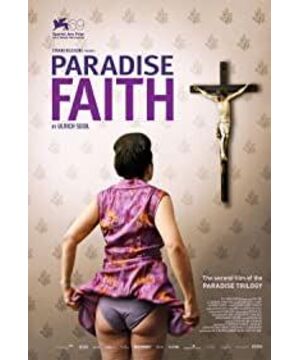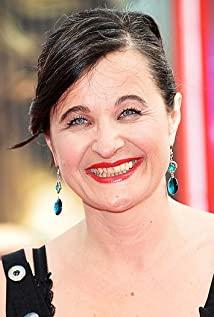In "Love", he shows a frenetic paradise on earth, sun and beach, overflowing with lust and love. The protagonist of "Letter" is ANNA, the sister of TERESA in the previous episode. The whole film may feel like an "antichrist", and it was undoubtedly controversial at the Venice Film Festival in Italy. This time I watched the Asian premiere in Hong Kong. Based on the big difference in cultural background, I believe that no crowd will criticize the director. It is often said that movies must have the courage to subvert, bring out different values, rather than follow the crowd, and need to lead the audience to other levels, rather than straightforward, elementary school students. Therefore, after watching the three "Paradise", it is natural to understand that this is all a process of self-redemption. Regardless of whether people are lonely or not, the three works mainly bring out the concept of "incompetent love".
In the film, ANNA often travels to various places to preach to others. She believes that Our Lady will help them find peace. She follows God's commandments and sings praises to his love. But when she meets her husband again, her love is shaken, which is what Christians call "temptation." As an apostate, I have a special love for this kind of work, especially in the belief that there are too many inconceivable rules, which are out of reality. But the author does not wish to view the film from a "hostile" perspective, and at the same time does not wish to undermine the value of religion. Therefore, focus on the level of "love".
Why the protagonist ANNA embarked on the road of religion, this point is inexplicable, a person always has his free will and knows how to choose what suits him. Knowing some believers who also obey God's commandments like ANNA, there is really nothing to criticize about this aspect of the religious description. In particular, everyone has his own values, but respect each other. In the film, however, the emphasis is on the fact that when religion follows you like a dead end, it is only when others resent it that you realize that you are doing something wrong. ANNA is both a religious fanatic and a lover. From a certain point of view, it is her and her husband fighting against God. From another point of view, it can be interpreted as her heart is empty and lonely, so she seeks religious solace.
The play is full of tension from the very beginning, including the description of ANNA's love for her husband and love for God, and one of the things that can be noticed in the play is that when two people of different religions get together, they can No peaceful coexistence. As a result, this harmonious way does not exist, and this kind of hatred and mutual incomprehension are brought out in the play. What is "faith" in the end, and whether God's heaven is truly harmonious and inclusive, there are some answers that need to be left to the audience. Either the audience will be disturbed after watching it, or it may be a joy for atheists. But after watching "Love", watching it directly after the original wild and humorous atmosphere is like going to hell. The coldness of the film, the complex feelings of two people hating each other but loving each other, and the scenes of challenging religion all stabbed into the hearts of the audience one by one.
In the room, the two husbands and wives battled their wits only to defend their gods. The Bible says, "There shall be no other gods but me." If there is true love, these man-made difficulties must be eliminated. In the whole series, both in the camera and in the way of the film are unparalleled. Still footage captures the conflict in the room, it's business as usual, it's so close to us. Putting faith in the "Paradise" series is the best response. The film is more serious, and it also unfolds another aspect of religion and brings out criticism.
As for the actors, Maria Hofstätter is almost Uriside's royal actor, and this one fully demonstrates her acting skills. And there are some scenes, whipping their own body is a very shocking picture. The film takes on a darker side, with a strong contrast between hope and despair. And the film also tries to bring the question of religion and life back to the audience, so that the audience can decide for themselves. In watching the trilogy, one is indispensable, or this is the director's mind, the journey to heaven is not easy to come by, and it shows the complexity of people and the meaning of why they exist.
Text/Dorothy
View more about Paradise: Faith reviews









